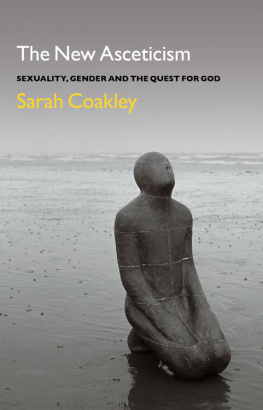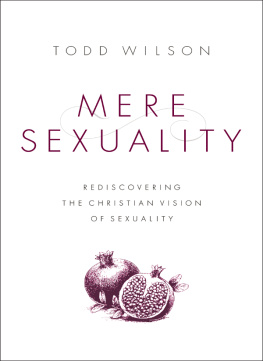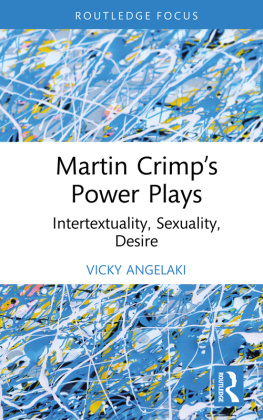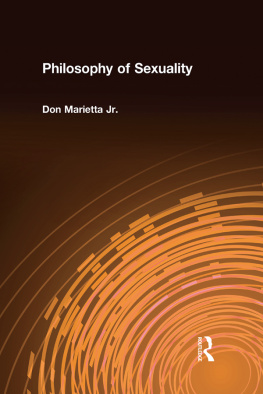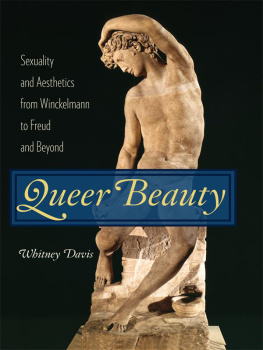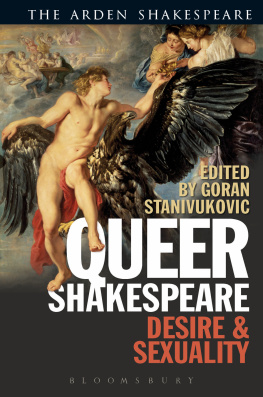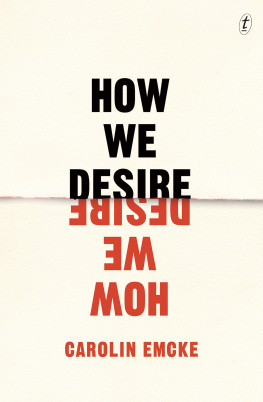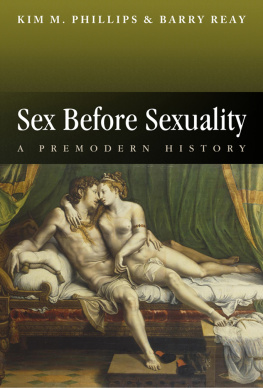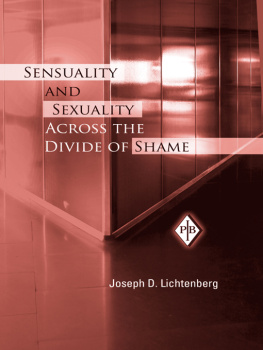Kant and the Spouse as Thing
And what if the mutual and reciprocal give and take as things were not a vice at all but a virtue, in fact, the only moral condition in the exercise of sexuality? What if to entrust the unconditioned possession of ourselves to someone who gives himself or herself with equal and unconditioned compliance constituted not the extreme experience of evil, but, on the contrary, the very essence of marriage understood as the only state that allows a rational and lawful practice of sex? Although it may appear surprising at first, this is Kants thesis, according to which man cannot make use of his body as he wishes because he does not have possession over it, it does not belong to him, he is not the owner of his sexual faculties. Who is the legitimate owner of my sexual organs? According to Kant, I am not, but he or she who makes me the owner of his or hers. My freedom, autonomy and independence find their own limitations in sexuality, or, better, they can only be exercised negatively in abstention and renunciation, and not positively in renting me out, as in prostitution, or in giving me to someone who does not give himself, in his/her turn, in an equally unconditioned way as in concubinage. The essence of sexuality is not located in a vague libido that the subject controls and runs as he wishes, it is not something subjective. When two subjects, says Kant, satisfy reciprocally their vague libido , without any other interest beside the service that each renders the other, it would seem that there is nothing unbecoming. But is this sexuality? Is not sexuality rather the movement in which I give myself infinitely to someone who in his/her turn gives him/ herself to me in the same way? How can we arrive at the neutral and boundless heath where the master finally takes possession of what always already belonged to him and will always belong to him at the moment when he recognizes and offers himself and always as slave? But this can only occur in wedlock which is based on the right to dispose of the person in his/her totality. In fact, says Kant, this right to dispose of someone else s person is in regard of the entire condition of his happiness and any other circumstance that concerns him. In wedlock each entrusts his/ her entire person to the other in order to acquire full rights on the whole person of the other.
It is very significant that Kant who is the philosopher of subjectivity par excellence would see in sexuality something that leads to the highest form of reciprocal submission between two people. Unlike so many beautiful souls who believe that the freedom of the subject can get along with sexuality, Kant is not deceived on this score. He realizes very well that in the appetite of having the other as thing, which one can treat as one pleases, there is inherent a principle of degradation of human nature. From the point of view of subjectivity, in the very sexual act resides something despicable and contrary to morality. To be sure, to consider the other as thing that feels seems somehow like an insult, but this humiliation can be overcome only by a similar giving oneself to him as thing that feels, reconstituting thus a unity of wilts in the common determination of traversing the infinite spaces opened up by becoming thing. Those who pretend to reduce sexuality to need, friendship or a recreational relationship make the same mistake as those who believe that philosophy is a good sense activity, a practice of average virtues or a sensible exercise. In actuality, there is in sexuality as in philosophy an excess which is essential to them, which constitute them as such, which is disrespectful of ones own and others liberty, that makes them similar to the slavery and dependency of drugs. Precisely because of their excess, sexuality runs towards marriage and philosophy toward the university. If they were reasonable and liberal, as the beautiful people of sexual liberation and university protests pretend, they would never shut themselves in the prison of marriage and philosophical schools. It is time to see marriage and the university on the side of evil, as pushers of sexual and philosophical excess that one cannot do without, rather than on the side of good as remedy to sexual and cognitive libido.
In Kants theories of the relation between sexuality and marriage, however, it is easy to detect an uncertainty, an unresolved problem. Kant fully recognizes the reifying character of sexuality, its compulsion to give and take absolute power. Therefore, he is extraneous to the ideology of adelphic and comradely marriage of pietistic memory, and unites sexuality and marriage inseparably. But if marriage implies reciprocal reliance of ones entire person on the other and thus encloses within oneself that mutual devotion which is the secret spring of sexuality, how can it be defined as only a contract? In Kants legal definition, isnt there something too restrictive and limiting, too tied to the independence and the autonomy of the subjects, too conditioned and too desexualized? Here the theory of faculties and the alienated sexual parts of the spouse come into conflict with the fundamental formulation of Kants philosophy. How can I give to someone by means of a contract something that I do not own, as Kant says? Those who consider marriage a sacrament, dont they see deeper into the essence of sexuality? Those who consider it as pertaining to fas , divine right, rather than to ius, human right, dont they have a better grasp of the nature of marriage?
Sadism and Sex Appeal of the Inorganic
It would be wrong, however, to consider neutral sexuality as a reciprocal master and slave relationship, where the partners offer themselves to one another in turn in absolute and unconditional submission. To be sure, in order to access the anonymous and impersonal territory of things that feel, one must be able to say do with me what you wish and be transported by an irresistible excitement in assisting the transformation of the person who burns and throbs in your arms to an inert and opaque entity which, nonetheless, is so receptive and sensitive to feeling the most tenuous caress, the most imperceptible kiss, the slightest touch. To be sure, one must use the greatest cruelty in delaying the least perceptions, the transits, the modulations, the variations of feeling, so as not to give too many stimuli all at once, in too many places, at the same time. Certainly one has to be able to see that absence, silence, abstention are no less harsh and bitter than the unlimited exercise of arranging, ordering, demanding any services, subduing, squeezing and traversing the boundless regions of the body, ruling over them as if they were the clothing in ones wardrobe, the pillows of ones couch, the carpet of ones floor.
But the impersonal dimension into which neutral sexuality introduces us has little to do with a master and slave relationship. It does not introduce a relation of equality in sadism since it lacks the premise of sadism, the appointment of a strong, autonomous, independent subject, master of himself who asserts himself and triumphs in a practice of appalling negation and destruction. After all it is absurd to think that a sadist could acknowledge to someone other than himself the right to display and express the infinite energy that animates him. And if he is prepared, at any moment, to change his role of executioner to that of victim, it is not because he agrees to a recognition of reciprocity, to the possibility of taking turns, but because even in misfortune and in defeat he is ready to assert his own happy and victorious uniqueness. The art of constant enjoyment, of finding ones own exultation in any state and condition, of discerning infinite occasions of voluptuousness even in torment, torture and death, is an ability that the sadist can only acknowledge to himself and no one else because it does not stand on an abstract principle but on the challenge that he has made to God and His creation at the moment when, in renouncing forever the possibility of constituting with others a unity of wills, he has bet everything on himself and on the unlimited reinforcement of his sovereignty.



